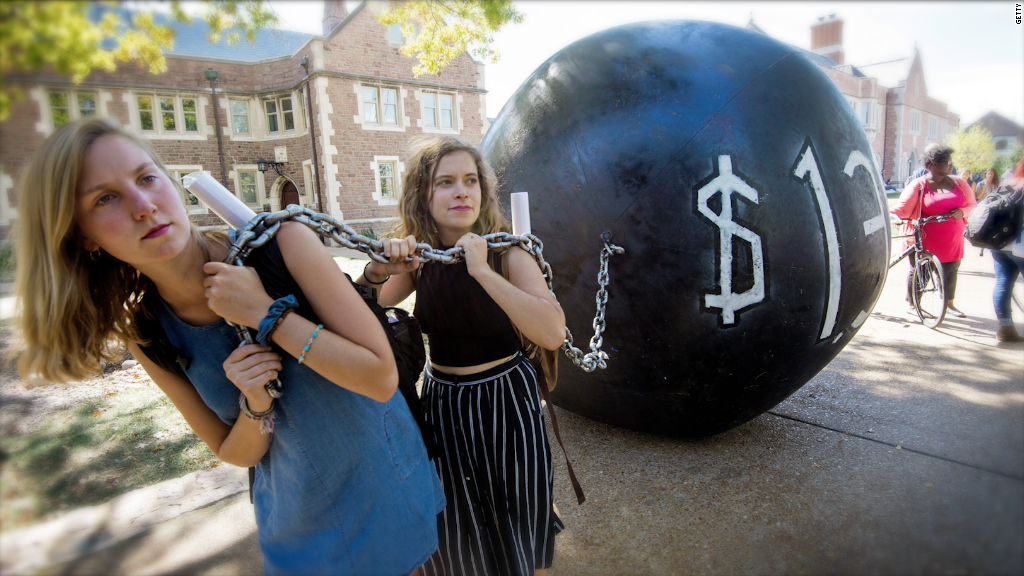
The push for free tuition gained support in another state.
On Monday, Rhode Island Governor Gina Raimondo became the second governor to propose a free tuition policy at public colleges this year, following New York Governor Andrew Cuomo. Both plans need to be approved by their states' legislatures.
Raimondo would limit the free-tuition program for residents to just two years, rather than four, at the state's public colleges: University of Rhode Island, Rhode Island College and the Community College of Rhode Island.
Unlike Cuomo's plan, every Rhode Island resident who graduates high school in-state would be eligible, regardless of income. Cuomo's proposal limits eligibility to families who earn $125,000 or less a year.
Related: Cuomo proposed free tuition at state colleges
Under Raimondo's proposal, only new college students who enroll in the immediate fall semester after graduating from a Rhode Island high school would be eligible -- no gap years allowed unless for military service. They must also maintain a 2.0 GPA while in college.
The scholarship covers the cost of tuition and mandatory fees for two years, but not the cost of room and board or meal plans -- which could cost just as much as tuition at URI.
Annual tuition and fees currently cost in-state students about $12,884 at URI, $8,206 at RIC, and $4,266 at CCRI.
At the Community College of Rhode Island, students must use the scholarship for their first two years (which would cover the whole degree if they finish on time). At four-year programs, the scholarship could only be used for a students' junior and senior years.
The idea is to incentivize students to graduate on time. Fewer than half of URI students, 15% of RIC students, and only 5% of CCRI students earn their degree on time, according to the governor's office.
Related: Louisiana students are about to lose half their scholarships
Meanwhile, it estimates that more than 70% of the state's jobs will soon require a college degree.
"When I was my children's age, most jobs in Rhode Island required nothing more than a high school degree. But for all of our kids, that's not the case anymore," Raimondo said Monday.
Her office expects the program to benefit 8,000 students and cost $30 million a year once fully implemented, or less than one-half of 1% of the state's budget. As with Cuomo's plan, Raimondo has proposed the program as a "last dollar" scholarship, meaning that it will cover the gap a student has on their tuition bill after using up any federal or state grants he or she already receives.
Related: Average college degree pays off by age 34
Both governors are Democrats, and have included funding for the scholarship programs in their budget proposals. In Raimondo's case, the push might be easier, since Democrats control both the Senate and House. In New York, Republicans control the Senate.
Former Democratic presidential candidates Hillary Clinton and Bernie Sanders called for free-tuition programs during their campaigns. Rhode Island and New York could be first to see it through.
Other states, like Tennessee, have made community colleges tuition-free after President Obama made a push for a similar nationwide program in 2015.
Are you a college-bound New York or Rhode Island resident? Share what you think of these plans with CNNMoney by emailing Katie.Lobosco@cnn.com.
